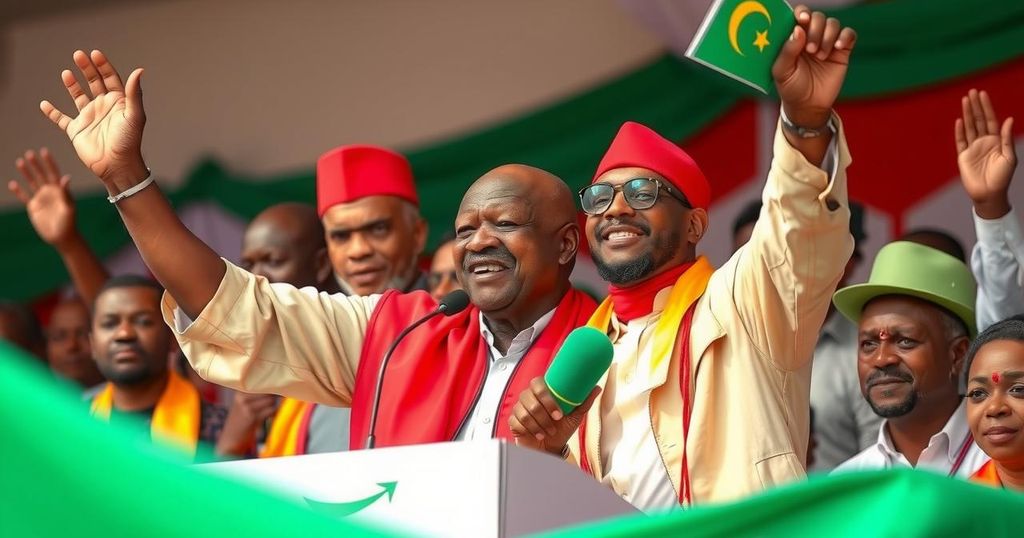World news
2024 ELECTIONS, AFRICA, AHMED BARTCHIRET, BOKO HARAM, CHAD, CONSTITUTIONAL REFORMS, DEBY, ELECTIONS, ELECTORAL COMMISSION, ELECTORAL PROCESS, EUROPE, FRANCE, GOVERNANCE, GOVERNMENT, LAKE CHAD, MAHA, MAHAMAT IDRISS DEBY, PATRIOTIC SALVATION MOVEMENT, SUCCES MASRA, TRANSFORMERS PARTY
Oliver Grayson
0 Comments
Chad’s Ruling Party Secures Majority in Historical Parliamentary Elections
Chad’s ruling Patriotic Salvation Movement party has won a majority in the parliamentary elections, securing 124 of 188 seats amid a 51.5% voter turnout. The elections mark a significant step in Chad’s transition to democracy following Mahamat Idriss Déby’s military rule. The process, however, was marred by the boycott of major opposition parties, raising concerns about electoral legitimacy and representation in governance.
Chad’s ruling Patriotic Salvation Movement (PSM) party has secured a significant majority in the recent parliamentary elections, according to provisional results released by electoral commission head Ahmed Bartchiret. The elections, which occurred last month, represented the first parliamentary exercise in over a decade amid a political transition initiated after Mahamat Idriss Déby assumed control as a military leader following the death of his father, long-time president Idriss Deby Itno, in 2021. The PSM achieved victory with 124 seats out of 188 available, amidst a voter turnout of 51.5%.
The parliamentary polls also encompassed regional and municipal elections and are considered a pivotal component of Chad’s transition to a democratic framework. Déby has expressed that these elections will facilitate an anticipated era of decentralization, redistributing authority to regional and municipal levels of governance, aligning with the aspirations of the Chadian populace. However, the elections were marred by the boycott of over ten opposition parties, including the influential Transformers party, which did not respond to the election outcomes immediately.
This parliamentary election represents a decisive moment for Chad, as it represents the culmination of a political trajectory initiated by Mahamat Idriss Déby’s rise to power. Following his father’s lengthy presidency, Déby’s military rule has traversed a complex political landscape punctuated by socio-political unrest and security challenges, particularly from extremist groups like Boko Haram. The desire for democratization and decentralization aimed at empowering local governance reflects broader aspirations of the Chadian people, yet opposition boycott has raised questions about the electoral legitimacy. The context of these elections is deeply intertwined with the nation’s historical governance struggles and ongoing socio-political dynamics. The ruling party’s triumph is expected to significantly influence Chad’s political future as it navigates pressing security issues and its historical ties with former colonial power, France, which have recently shifted in light of various geopolitical factors.
In conclusion, the recent parliamentary election results indicate a robust victory for Chad’s ruling party amid a pivotal political landscape marked by the transition from military rule to a democratic framework. Although the PSM’s majority suggests a consolidated political power, the absence of main opposition parties raises concerns about the electoral process’s inclusivity and legitimacy. As Chad endeavors to address significant security challenges and facilitate decentralized governance, future political dynamics will likely shape the country’s trajectory significantly. The elections’ outcomes will be critical as Chad seeks to navigate the balance between consolidating power and responding to the people’s democratic aspirations, amid broader regional and international challenges.
Original Source: www.trtworld.com




Post Comment